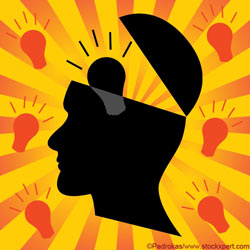Child psychology: An introduction
Add to My Folder
Use our child-psychology series to help tailor your teaching style to the needs of your class

Turn on the television, open a newspaper or magazine, listen to people from business, education, health, law, sport and numerous other fields, and it will become apparent that we live in psychological times. To some extent we display psychologists’ tendencies at one time or another – to attribute a deeper meaning to something or someone, especially with the likes of reality TV and a host of debate programmes to comment on. Having some understanding of psychology, however, and actually being a qualified psychologist, is very different. Educational psychologists, for example, have to take a first degree in general psychology, before undergoing specialist training and engaging in closely-supervised practice. They are required to have a grasp of a wide range of theory and scientific method, to belong to a professional body and to follow a code of ethics and professional conduct.
Understanding and formulating the application of relevant psychology to unique situations in real life is a very complicated business. So, while teachers will definitely benefit from some knowledge of child psychology, they should never feel that there is a requirement for them to be psychologists – after all they have their own complex work to concentrate upon.
Scholastic Resource Bank: Primary - join today!
- Over 6,000 primary activities, lesson ideas and resources
- Perfect for anyone working with children from 5 to 11 years old
- Unlimited access from just £1.25 per month
Already a member? Sign in below.
Published 27 October 2008
Reviews
You need to be signed in to place a review.